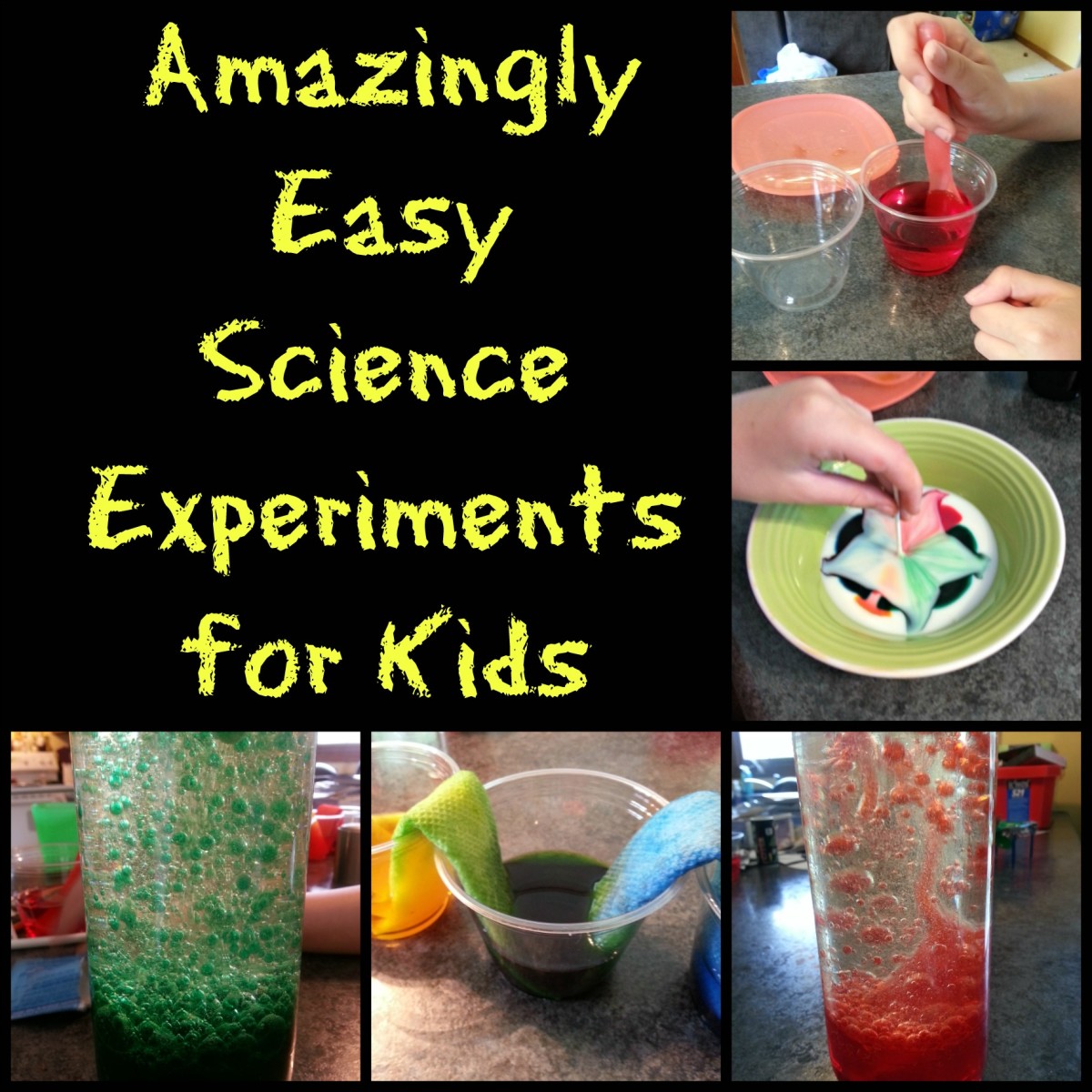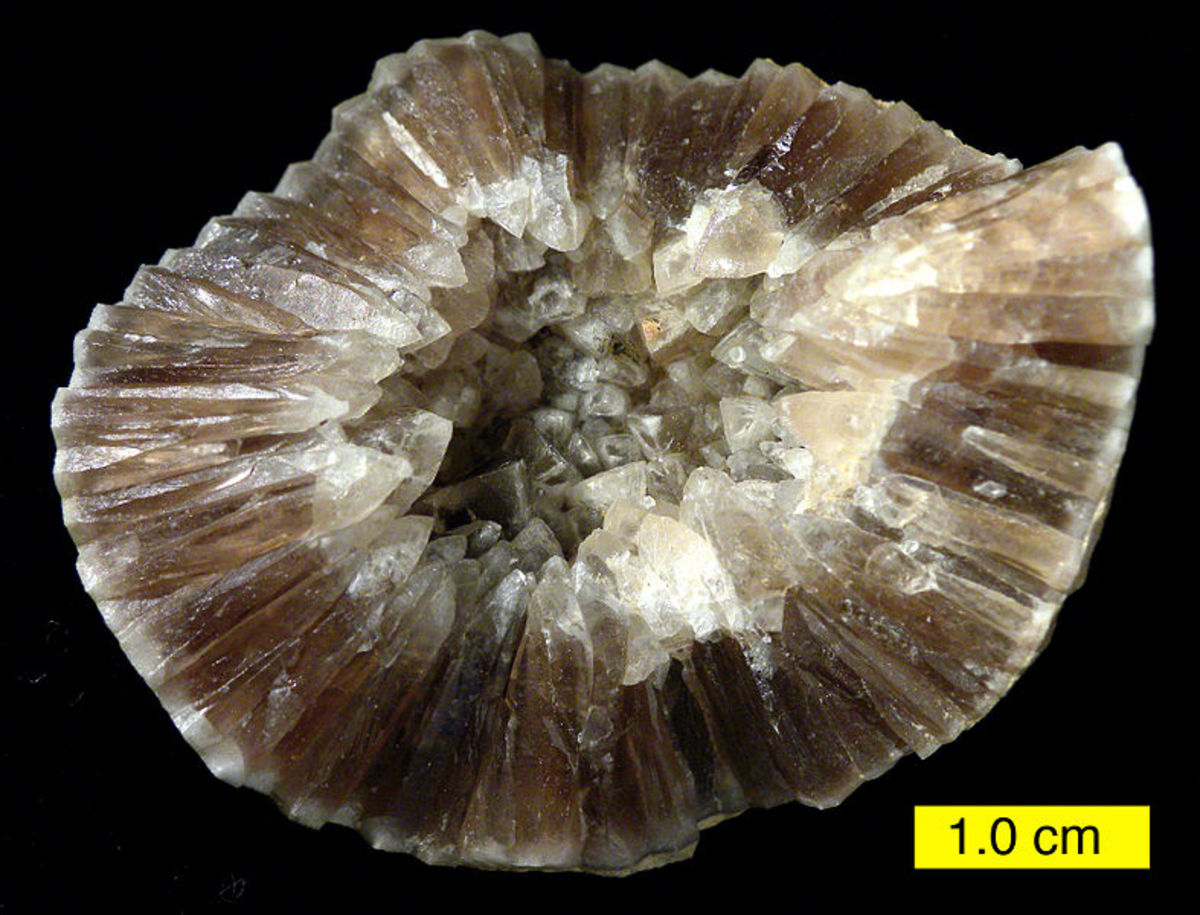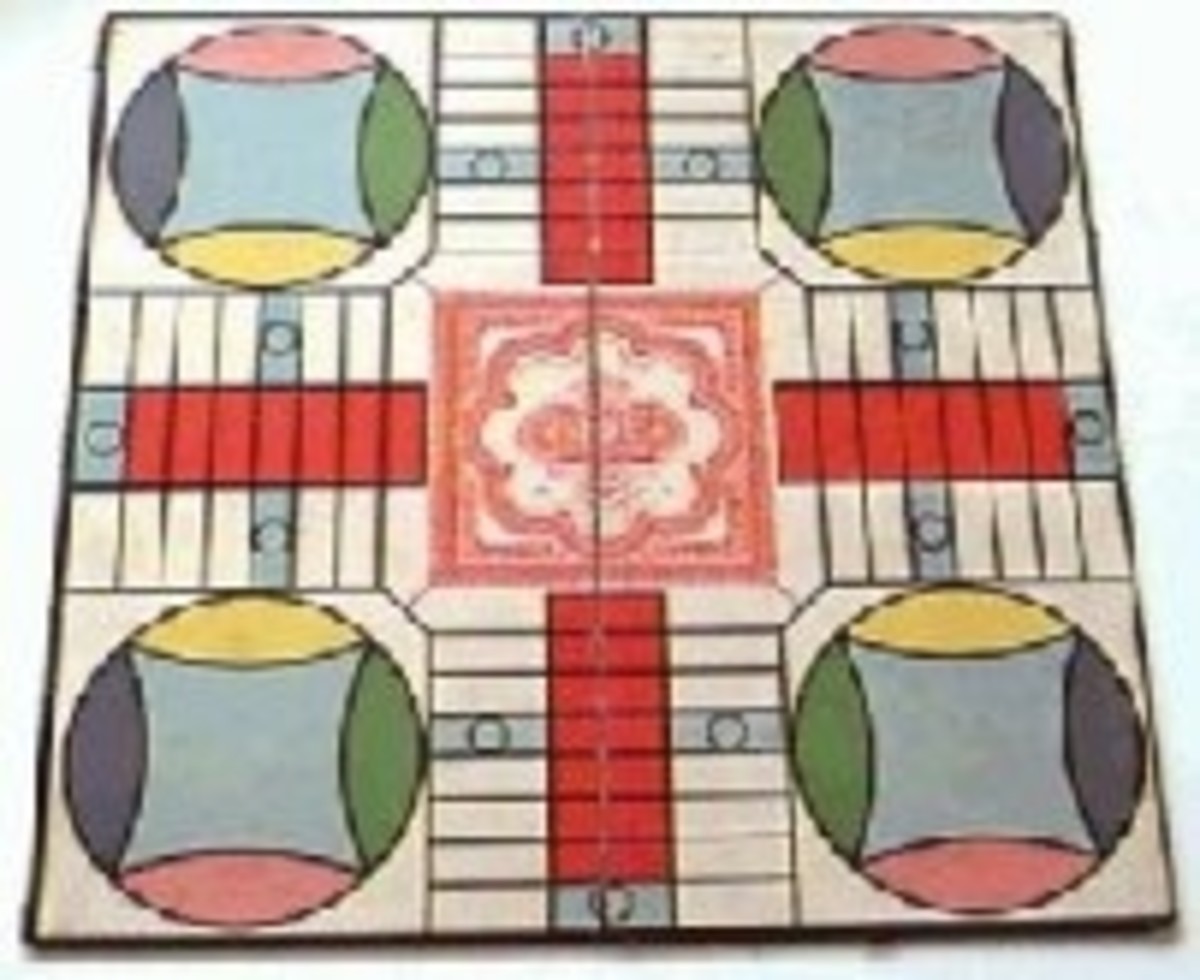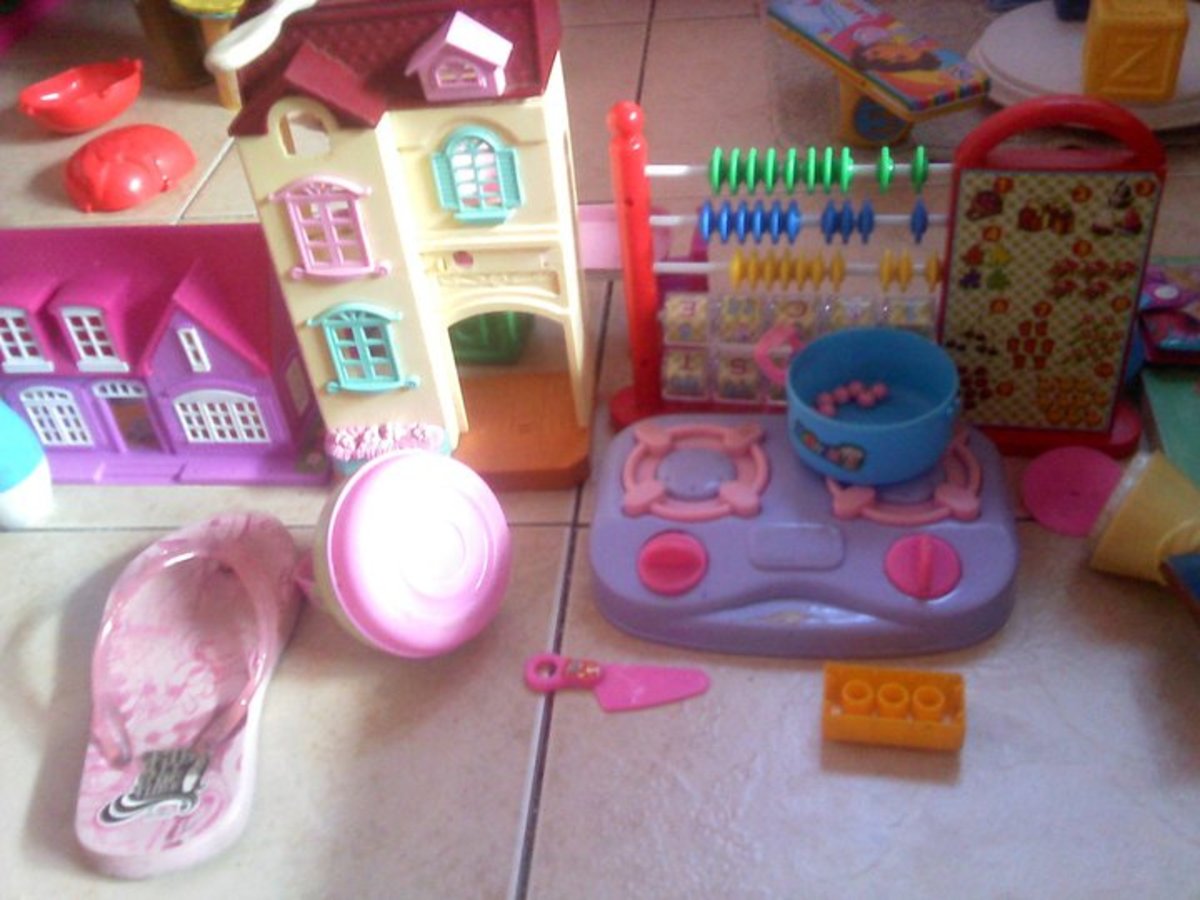Fun Science Play for Children

How to Make Science Fun
Easy. As an adult, you should be proud to know - all that science you found hard in school is actually much easier now! Why?
Because you have a decade or two more of experiential knowledge that has helped develop your common sense around simple scientific, everyday phenomena that actually will make science come easier to you now. And that makes it fun!
Think About What Water Looks Like To You
Have you really paid attention to watching ice melt? As an adult, when was the last time you really listened and watched an ice cube in your drink? Take a second look and really pay attention. Look and listen and really pay attention to what you notice.
Than do this with your children. Ideal for children ages 5-7 years old, or grades 1-3, generally.
First get them to draw what they think about when they think about the word "water". This is just to see how their little minds think. Children have big imaginations and unique rationale more in this early phase than any other time of life.
All my children had concrete ideas of what "water" means to them. They all drew a liquid form of water, an ocean, a bath, or a beach. An abstract idea would be advanced concepts like drawing an ice cube and explaining that the water had changed, as an ice cube is" frozen water".
What did your children draw when they envisioned water?
All You Need To Teach About Solids And Liquids at Home
- A small plastic bowl for each child
- A plate
- Hot tap water, make sure your children stay safe
- Ice cubes
- Paper
- Crayons/pencils/felts
You Will Talk About Atoms and Molecules
Discuss that all things that take up space are made of matter, and matter is made of atoms.
- You can only see atoms with a high powered microscope
- 2 or more atoms can combine to form a molecule
- A water molecule is made up of 2 hydrogen ion and one oxygen ion
It may help to explain to young children that molecules can stick together, by bonding, like good friends. Put it into a perspective they can understand.
Get them to draw the a water molecule, a triangular shape, with two hydrogen and one water ion attached.
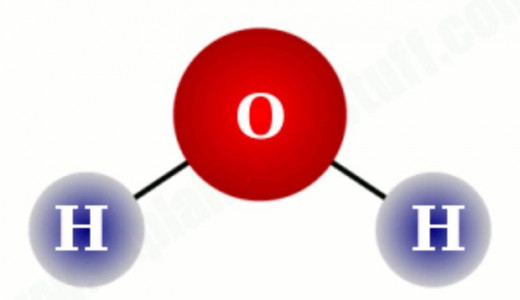
Predictions
Ask your children what they expect will happen right before you do this experiment. Again, we want to know what they think! Answers will be based on their life experience and current chronological age.
When you do the first experiment make sure to see if they heard to "crack". Try not to warn them before hand. See if they question it on their own.
Than if they do not mention it, talk about it and do the same experiment over again. You should refresh the supplies to make sure you get a loud "crack". Refill the hot tap water and get another really fresh, frosty, ice cube.
"The ice cube will melt"
— My daughter, Sierra, 6 years oldSierra's Prediction Drawing
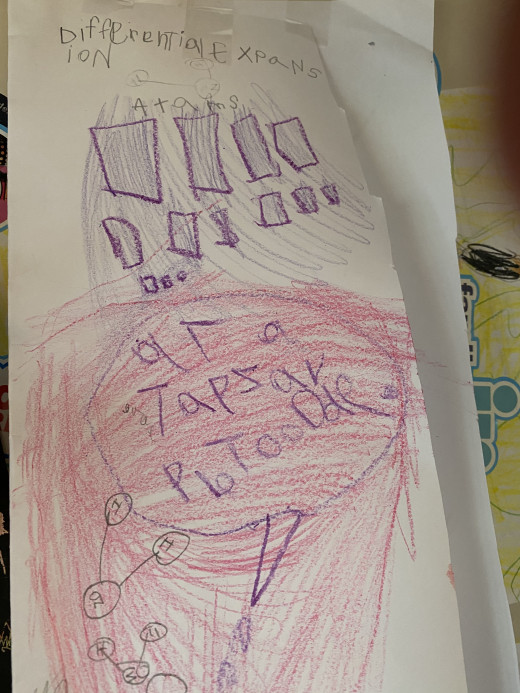
What You Will Be Doing
Experiment
| What Happens
| Discussion
|
Fresh ice cube, hot water
| Listen for the "crack" sound, watch ice cube melt
| Talk about differential expansion, explain the drastic changes in temperature cause the cracking as the bonds are ripped apart
|
Ice that has had time to thaw, room temperature water
| Listen, NO "crack" sound, watch ice cube melt
| Talk about the temperatures of the ice and water being more equal so they slowly accommodate to the new temperature
|
The outer edges and surface of the ice cube will be the first areas to experience the drastic temperature shift and begin to engage in heat exchange. The “cracking” sound you hear when you pour that liquid over the ice is caused by a phenomenon called “differential expansion”
— John StaughtonAdditional Discussion and Debriefing
You can also discuss with your children what they thought about the speed the ice cube melted.
- With the more drastic temperatures, the hot water, the ice cube will melt faster
- With the thawed ice cube and room temperature water the ice cube melts slower
Ask them what they thought of the experiment! See what some of their thoughts and comments are!
How My Oldest Captured This Solid and Liquid Experiment
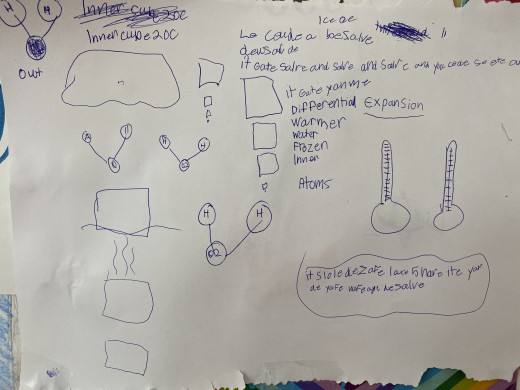
After Doing The Experiment - Watch This Video Together!
Discuss What You Saw In The Video
Discuss this short video with your children, talk about what you liked, did not like, and what you found interesting.
My family liked that the video was in slow motion so you could really see what was happening.
My daughters also really like watching the dry ice affect at the end - something we can not try at home!
In Conclusion:
This article provides the steps to a simple science for young children ages 3-8 years old to introduce concepts of solids and liquids.
Children will earn about the concept of differential expansion, or how ice melts
Children will learn that melting in hot water occurs differently than melting in room temperature water
Drawing, discussion and watching are all great ways to reinforce learning at this age. Since children have great imaginations and learn in such varied styles it is just as important to "do" as to "see", or be told what to expect. "Doing" and "seeing" also help focus children and therefore also facilitate the learning process. As a parent, you can ask them questions a day or two later about what they did in the experiments to further consolidate their learning.
Reference:
Read more about ice and differential expansion here: https://www.scienceabc.com/eyeopeners/ice-cubes-crack-pour-water.html
This content is accurate and true to the best of the author’s knowledge and is not meant to substitute for formal and individualized advice from a qualified professional.
© 2020 Yuliss

